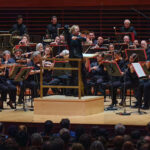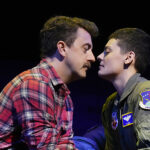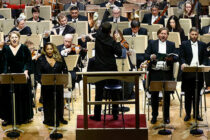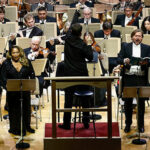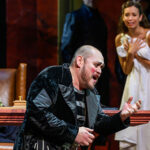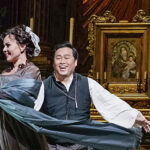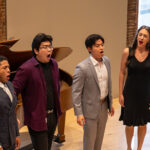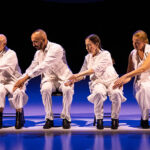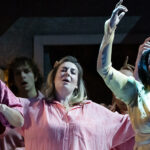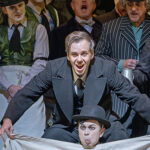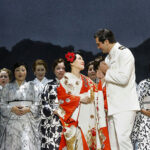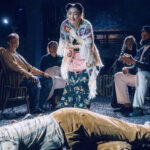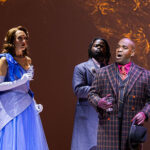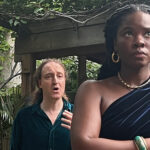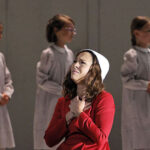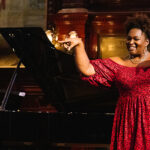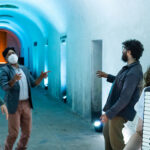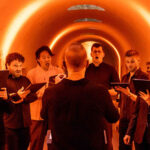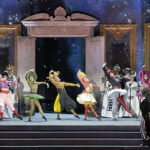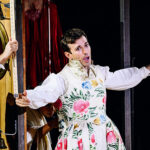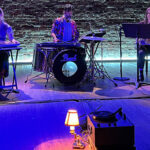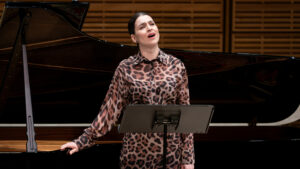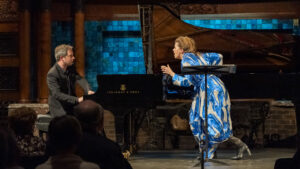
Performance Review
Maximalism was on the menu last weekend at the Philadelphia Orchestra.
It’s not so much that I hated the Met Opera’s Grounded. I’m just not convinced that it should have been an opera.
Mahler’s 8th Symphony is an enormous and enigmatic work.
The music was at every point dramatically compelling, without seeming cheap or manipulative.
Rigoletto is the perfect opera. The story is straightforward and powerful; none of the action occurs backstage or between scenes or twenty-seven years before curtain rise; and the ethical anvil lands not once but twice, on the title character singing, “La maledizione!” The curse!
Lincoln Center is in full diva mode. Or at least that is what it seemed as I passed the line of posters outside Alice Tully Hall for the forthcoming Maria Callas biopic.
Eastern Long Island remains surprisingly verdant even into the early fall.
The show, with its high production values and ever so abstract and high-minded Vedic metaphor, presents a nominally innovative performance that points at the avant garde but never quite ventures into challenging territory.
Two opera houses, both alike in dignity (but less so in resources and international fame) launched their seasons this week, making similar out-of-the-box choices: new works on edgy, contemporary themes.
Lyric Opera of Chicago has opened its new season with a revival of its tried and true 2006 production of Verdi’s sixteenth opera, Rigoletto, one of his most tuneful and dramatic works (I attended the Sunday matinée performance).
Les Contes d’Hoffmann is something of a puzzle in which some of the pieces are missing and others been altered to fit since Offenbach died before he could complete and revise the work.
My vision may have been slightly blurry at the end.
One moral is that Eugene O’Neill may just not be opera fodder.
Boston Lyric Opera’s shows, of late, are often going to war with their texts.
They used to say of the island of Crete that it produces more history than can be consumed locally.
“[W]omen are interesting and important in real life. They are not an afterthought of nature, they are not secondary players in human destiny, and every society has always known that.” — Margaret Atwood, February 2017
It takes a lot to stop a show with a few minutes of music—and that is exactly what Leah Hawkins did during the 2019 run of Porgy and Bess at The Metropolitan Opera.
It was an unexpected tone for the cold stone and moody ambiance of the catacombs—an odd juxtaposition that I’m not sure really worked.
It was as though they had released us from an enchantment and we all woke up giggling and surprisingly well rested.
Overall, this was a superb achievement and a thrilling season opener for the San Francisco Opera.
But pressing questions remains: Why? Who is this Figaro for?
Unlike more surface-level historically informed practice which has become the norm in early music ensembles, this project stands out in its surprisingly deep engagements with the ethical and practical challenges posed by “recreating” Wagner’s sound.
Two experimental new works from thingNY explore decadence, quarantine, digestion, and lineage at The Exponential Festival.

